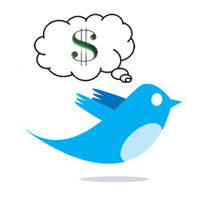This is the unabridged version of my latest post on TechCrunch. This version dives much deeper into the challenges, pitfalls, psychology, and associated opportunities to more effectively navigate this complicated, but imminent issue.
In light of the FTC’s recent scrutiny of Social Media practices and the activity that connects brands to influencers and ultimately consumers, we will soon see guidelines and corresponding penalties to serve as governance for future engagement.
My views and opinions of how the FTC is flawed in its dissection of the blogosphere and Twitterverse as compared to traditional media is reserved for a separate, but imminent post. As a matter of edification, I support the FTC’s mission of protecting the consumer. I just don’t agree with how it lumps earned mentions from meaningful and effective public relations (PR) and paid placement of content either through monetary or product exchanges. There’s a difference and we’ll talk about that later.
In the realm of sponsored posts or tweets, the FTC simply cannot delineate the differences between earned and paid postings and therefore assumes that most consumers are equally oblivious.
With Izea’s impending announcement of a new pay-per-tweet network, combined with existing ad networks and services such as TweetROI, Twittad, and Magpie, the FTC will be forced to pay attention to the paid endorsements in one of Social Media’s most promising and also elusive networks.
As you could possibly imagine, the reality of mass-sponsored tweets will raise a Tweetstorm that will immediately trigger a blogstorm, which will ultimately escalate into full-blown category 5 media hurricane.
But the reality is, whether you agree with them or not, sponsored conversations and paid tweets work when used in the correct situations as a complementary program in addition to other traditional and socially-focused engagement initiatives.
They increase awareness, expand networks, drive sales, build community, promote causes and raise money and awareness, and push traffic.
So, before the chaos and confusion ensues, I wanted to take a proactive role in steering a productive conversation to explore and introduce solutions, ethics, standards, and also reduce the possibility for consumer confusion and potential backlash.
I hosted a virtual summit on the topic via Facebook and invited pundits and industry leaders to discuss:
– The issues and options for meeting FTC guidelines
– The responsibility of brands and participants to provide consumers with information, context and intent
– The inevitable need for guidelines and standardization in disclosure practices
– And how participating in these sponsored conversations might impact the image of the sponsoring brand as well as the brand of the influential voices who lease their stature and social graph how it ultimately affects the dynamic, trust, vibrancy of their community
Disclosure certainly protects all parties involved, but it can also steer perception, which is why this discussion is so critical to the evolution of sponsored conversations.
The debate however, centralizes on the mechanisms and terminology for disclosure and whether or not they are effective when either explicit or implicit in nature.
I introduced options for consideration such as including a symbol or term in each Tweet (TM) that conveyed sponsorship or endorsement such “$,” “spon,” “paid,” “endorsement,” “sponsored” or possibly including an is.gd or bit.ly link to a landing page that could more effectively communicate the nature of the endorsement, ad, promotion, and the intention of the relationship. From the beginning, I did not purport the use of a hashtag “#” in disclosure however.
Stowe Boyd, a fellow digital anthropologist and social architect, and also the creator of Microsyntax.org, shared his views on the implied mindset associated with hashtags, “Generally, hashtags are indicators about the nature of the topic of discussion in a tweet, not the nature of the tweet itself. Note that sponsored tweets might (and often would) have other tags, which would lead to the “adness’ of an ‘#ad not standing out…’”

Credit: PaidPerTweet
As the conversation deepened, the rationale for one standard or solution unlocked a series of challenges that necessitated further exploration and discussion.
As I noted in the forum, the use of “paid” for example, precipitates psychological connotations that will evoke a completely different emotional response as compared to endorsement or sponsorship.
Anders Abrahamsson shared an interesting perspective, “Paid is coming close to that you sold out your integrity – some might call it prostitution.”
In response, Stowe offered a general resolution that resonated with many participants, “My recommendation would be to concoct a new indicator, perhaps ‘AD’, to place at the start of any sponsored Tweet. This has several benefits since anyone would immediately know, at the outset of reading the tweet, that it is sponsored. It stands apart from the tags, which usually appear in a cluster at the end. Also, this would make it easy for tools to build filters to block ADs or to easily find them, depending on your leanings.”
I believe there’s a difference however, between sponsored and paid tweets, one defined by purpose and objective. For example, I enjoy the tweets published by Gary Vaynerchuck and I observe that he has a tremendous following of developing wine enthusiasts, I may choose to either sponsor his Twitter wallpaper and/or his tweet stream. In this case, I don’t necessarily influence his tweets, I simply sponsor them.
This introduces another alternative through the disclosure of relationships directly on Twitter backgrounds.
However, if I pay for tweets specifically, then I expect to dictate the content related to each paid tweet.
Unfortunately, in the eyes of the FTC, they are the same. So, as Stowe says, “I think we should go with the FTC interpretation until the FTC changes it, and lump them all into AD. Note: if people disagree with this convention, they can do what they want. But I feel that biases should be as transparent as possible: as Weinberger wrote, Transparency is the new Objectivity.”
He’s right. However, I disagree with Weinberger. I don’t believe transparency is not the new objectivity at all. Objectivity was compromised the minute that links became the currency of the social Web.
We are biased one way or another when we publish information online. Whether we’re seeking attention, linkbacks, RTs, comments, traffic, feedback, etc. Transparency begets nothing. It is simply a buzzword associated with Social Media. Openness and candor are not substitutes for value, direction, education, or insight.
Brian Carter of TweetROI shared his perspective on sponsored conversations versus ads, “I still haven’t heard a good reason from those who champion transparency why we must disclose only financial motives, not all of them. SP and AD make sense. Surprisingly, even some quality Twitterers, don’t want to change the advertiser’s text. That’s where the concept breaks down- they agree with the sentiment as written. Everyone interprets payment/ sponsorship differently….”
Ted Murphy of Izea responded with support and support for collaboration, “I am not sure there is one specific answer to this question. The only thing that everyone seems to agree on is there should be some form of clear disclosure required for any tweet where value exchanges hands. I 100% agree.”
At this point, SP and AD become potential preambles for sponsored and paid tweets respectively.
But, Jeremiah Owyang, social technology analyst with Forrester Research, believes that they are not enough, “People won’t understand that ‘AD’ and ‘SP’ imply that those tweets are paid for. We need to be explicit, even if it occupies more characters in the tweet. The only solution is to specifically state, ‘sponsored’ in each…”
Again, I suggest that an included (shortened) URL that directs to a pre-defined page that explains the sponsorship and further clarifies the intentions and benefits of the program is another option to consider. While it’s implicit in nature, it communicates disclosure in a mutually beneficial way that serves the twitterer, the brand, and the reader.
If the leaked Twitter documents, also know as Twittergate, are anything to consider seriously as they relate to this topic, there’s reason to believe Twitter is already thinking about this as a form of revenue generation.
As Jeremiah explained, “Twitter may soon implement color coding or introduce different fonts for sponsored and paid tweets.”
James Eliason of Twittad believes that Twitter should release an API to support color coding as not only a form of disclosure, but also as a measure of preventing spam, “I can tell you from meeting with several Fortune 500 companies over the last several months they are intrigued about this new form of influence marketing if it is done correctly. What many do not want to have happen is the “high-jacking” of a hashtag or ‘ad’ format within this space. Imagine a situation where a large group of users begin doing their own false advertising on behalf of a brand, and simply throw in a #ad, #spon, AD, or SP. This can not occur.”
Eliason took the case to Twitter co-founder Evan Williams where he recommended that Twitter begin the process of selecting specific ad partner providers to prevent dilution from spam marketers and ensure that the advertising comes from the source through the API. His idea is to assign the API calls from each ad partner through Twitter.com and also third party apps such as TweetDeck, Seesmic, and PeopleBrowsr. He also believes this introduced a new subscription model for users to pay a small fee for a non-ad model across all platforms.
Izea’s Ted Murphy is proactively contributing his ideas towards developing standards and also collaborating directly with the FTC on the establishment of fair guidelines, “They [The FTC] invited me to Washington discuss my thoughts about Universal Disclosure and the current loop holes in the guidelines that need to be closed. Soft-money transactions like free products and trips as well as the definition of experts and celebrities were also discussed. The bottom line is everything should be disclosed.”
He continued, “The biggest hurdle to disclosure standards in social media is not platforms like Sponsored Tweets or TweetROI. It is the PR Practitioners, Social Media Consultants and Brands that don’t enforce disclosure or disclose in different ways. If a tweet from a platform needs to be in different color but a tweet from a tweeter that just got a free trip or video game doesn’t it puts the platforms at a disadvantage. It’s unfortunate, but even organizations like WOMMA don’t have standardized methods of disclosure among members. The only way you will see standardized disclosure in Twitter and all of social media is if the government mandates it (which I am for).”
Indeed. Our challenge isn’t only to unite the industry of sponsored conversation providers around common standards and ethics, we must also encourage marketers to put them into practice.
Whether it’s on Twitter, in blog posts, or in television commercials, paid tweets are technically no different than the array of commercials and advertisements that are available to marketers already. However, they are compartmentalized in function, impression, perception and level of appreciation. And, there are undertones associated with each word that exude contrasting reactions. It all starts with the intention of the campaign and the calculated brand traits/characteristics, values, and sketch of the picture you desire to paint. These steps and measures guide sentiment and activity.
For instance, what comes to mind when I mention:
– Advertisement or ad
– Commercial
– Informercial
– Endorsement
– Sponsored or “brought to you by…”
– Paid placement
– Advertorial
My point is that each one of those words carry hidden meaning and nuances that will not receive due justice or rally support for standardization if represented by a one-word tag within a tweet. This is further complicated by the nature of the disclosure in relation to the essence of the promotion and whether or not it is implicit and explicit in the tweet.
While everyone agrees on the need for standards, and it’s clear that competitors will actually collaborate to help define them, there’s merit and promise in top-down regulation from the FTC and/or Twitter itself. In the meantime, I still believe that including “sponsored” as Jeremiah suggests, providing disclosure on individual wallpaper, or including a link to a page that offers context and clarity (using a custom URL shortener that includes “disclosure” in the construct – for example, disclosure/hgt7), represent credible alternatives in the interim.
However, as Eliason and Murphy note, the FTC and Twitter itself may have to step in to dictate a solution.
Integrity is a priceless commodity...
Connect with me on:
Twitter, FriendFeed, LinkedIn, Tumblr, Plaxo, Plurk, Identi.ca, BackType, Social Median, or Facebook
—
Kindle users, subscribe to PR 2.0 here to receive this feed on your device.
—
Now available (click to purchase):


—
pr pr+2.0 pr2.0 public+relations marketing advertising interactive social+media socialmedia brian+solis social media media2.0 media+2.0 2.0 smo social+media+optimization marcom communication publicity advertising interactive spin brand branding Tweet twitter sponsored conversation ad ftc federal+trade commission izea tweetroi magpie ted+Murphy stowe+boyd jeremiah+owyang disclosure brian+carter mommy+blogger blog blogger media reporter journalism






![While AI learns and gets smarter and smarter, I spend my time preparing for the future by… [fill in the blank].
The most important skills of the future are human…
#creativity, #imagination, #individuality, #criticalthinking, #empathy
bit.ly/LifescaleBook 💫
Artist: @asiersanznieto
#promptengineering #prompting #ai #genai #artificialintelligence #keynotespeaker #motivationalspeaker #motivational #motivation #education #learning #leadership #leader](https://briansolis.com/wp-content/plugins/instagram-feed/img/placeholder.png)
Brian, thank you for leading this discussion is such a rational, balanced manner. Fantastic post.
Agree with….
I think the AD and SP should be linked to the defined page-explaining–that should do it. People can filter for AD and or SP.
I see EM (Emergency) as another useful tag to be placed at the beginning of a post– From a Public Health perspective this move would be beneficial across social media platforms. There would have to be some specific consequences for abusing EM–or limit to specific agencies–to protect it's usefulness. EM should probably be followed by a zipcode or something generally knowable–
great post, brian. marketers always have to place the word “advertisement” above an ad that is designed to appear as though it were editorial content designed in keeping with the magazine in which it runs. if the intent is to feign authenticity for ultimate profit — which paid tweets would be — then yes, the FTC must step in, just as it has with other media. thank you for the thinking.
Brian,
Great post, and thank-you for listening and passing through the ideas which we brought forward with regards to sponsored conversations.
Nice post, Brian.
Yeah, I think you have to be as transparent as possible so there is no ambiguity over it being an ad. Sponsorship may have a place here, but paid tweets…I'm not so sure. It's getting far too close to push advetising and it just doesn't work on social platforms.
Brands will have to build their own reputation on social platforms and then leverage the relationships they can create and maintain. That will mean they need to operate in an honest, customer focussed and transparent way – which is kind of what everyone is getting at with all this guideline business.
The last thing we want is government regulation. What's needed is for folks to begin enforcing the behavior through market response. Twitter needs to run with it and immediately institute the ability for individual to indicate their posts are sponsored, ads, or something else. That should be easy enough to integrate, witness Plurk's options.
I'm up for a transition period if need be where folks mark their tweets as ads or sponsored etc. But better would be some kind of standard flagging among clients(desktop or web based). Twitter merely has to provide the flagging.
As for blog posts, there's already perfectly good rules and guidelines without the government having to step in. Mostly it's the behavior of the viewers. Admittedly it's not always clear that someone's post on a blog is free of any personal gain, it's perfectly legit for us to ignore it either way. Heck, magazine article writers often get by without mentioning their exact relationships to products. What makes anyone think the government will do a better job of regulating social networking.
Education at this point would be much more effective than legislation. I take ownership of educating my family, and to the best of my ability, my friends and cohorts. That's where you'll see bloggers, yourself included, reaching out to the community to clear up things.
Anyway, ranting aside, anything that requires the government to get involved has me worried from the start. The already mentioned choice to ignore subtle but key differences is just the beginning. Next you'll have widely varying punishment and enforcement. It'll be a mess before it gets down the road.
Cheers to a thought provoking post.
Todd
At the crux of the issue here is the size limitation of the Twitter format. In that regard, I have always considered my entire tweetstream to be the “document”, if you will, not each individual tweet. The individual tweets have to be read in the context of at least my profile, and really, my broader web presence.
Point is, I think it's overkill to label each and every individual tweet that's a verbatim ad or sponsored. I mean, is the issue really whether or not someone had some kind of incentive for a particular post? And whether it might potentially be deceptive or misleading? Or is it more broadly the issue of having the full context of what potential biases the author might have?
I think it's the latter. In which case it makes more sense to simply have a one-time disclosure section, either on their Twitter profile or the page which is linked to from their profile, e.g., Chris Brogan's Disclosures and Relationships section of his .
I don't need to see disclosure in every single blog post or tweet of his. In fact it would be completely freaking annoying. If I give a rat's ass about it, or if I have any skepticism about his potential bias, the information is easily available if I decide to research it. But I don't need it thrown in my face with every single message. To me it would be the equivalent of putting “Advertisement” between every paragraph of an advertorial.
I mean let's face it — anyone who actually spends money on something purely on the basis of one tweet from one person, with no other investigation, deserves what they get.
I'm all for disclosure — I just think the purpose of any regulations or guidelines should be to prevent deception and allow rational people to make fully informed decisions, not to protect people from their own stupidity.
Twitter is like a breath of fresh air on the Social Media scene. I have been on it for just a few weeks now and I have met several interesting people. It is a platform to network with people you would like to meet in real life.
KZ
Email Marketing Software
I take IZEA Murphey's comment, “If a tweet from a platform needs to be in different color but a tweet from a tweeter that just got a free trip or video game doesn’t it puts the platforms at a disadvantage.” and say “so what”.
Surely we're not about trying to work out what sort of solution will be fair to agencies, in-house teams, the technology or the techniques they're using. We're about being ethical, legal and transparent. Backing a way from one good solution because it'll force changes to someone's business model is a bad idea. We should go with best practise and make the changes necessary to adapt (we might ponder where newspapers would be today if they did that).
While I think that there is some responsibility on the side of government to provide consumers with the “feel good” aspect when it comes to what they see and read online and offline. I become concerned when individuals feel that the ONLY regulation is by the hands of the FTC and the government. I completely disagree with that. The Twitter platform and their team can control everything that occurs on their network. Let them figure it out.
Hi Brian,
I have recently started following your blog on some recommendations but I must say I am surprised that you mention FTC or Twitter stepping in to direct the a solution. Thats so 20th century approach to a problem related to something as fresh and recent as twitter!
For me, Regulations is as dirty a word as “paid sponsorship” or “endorsed” in current times. However, I still find “Ad” and “Promotion” as totally ethical acts.
I further believe “marketplace” is the driver for everything in the long run and I am pleased to see guys at twitter show no hurries or worries at many of the things PR and marketing firms would like to push aggressively.
The “customer experience” should be the driver and I believe with all the high tech tools churning out all kinds of analytical reports, data and intelligence, twitter is in position themselves to analyze the same after a while and observe how marketplace is treating such tweets.
Once they do the above, It should be very easy for them to take a lesson or two from that and incorporate mechanisms aligned wishes of the marketplace.
Thats it! Shouldn't it be this simple?
Thanks
Rohitaash
http://Rohitaashsays.com
Is it clear for people on Twitter when somebody is doing an advertisement tweet or a sponsored tweet or is just really being enthusiastic and willing to share with you his/her thoughts about this great product/service.
The discussion leads to the point how to get full disclosure, a topic which remains and becomes more and more important. Openness and honesty are key on the web, it creates credibility.
It seems to me we are on a very interesting crossroad, as a community we are discussing now how to protect our own integrity and show the road on how fair business is supposed to be done. We are taking the role of the government in our own hands regarding regulations on how to have full disclosure. As in ads in magazines it shows on top of the ad sometimes that this is indeed an advertisement, just to be 100% clear to the reader what they are looking at.
Examples of disclosure now are to put AD or SP in front of the Tweet to show its either Advertisement or Sponsoring. A comment on this post from “deylight” is to use “EM” as a short code for Emergency, being used by institutional body's.
The Twitter community wants to take control in their own hands and organize disclosure them selves, but will we come to one unified agreement? If we could get one coding list and actually stick to it (how to burn those who do not hold itself to the coding; banned for life?), it would give Twitter a whole new level of usage.
Outbreak of the H1N1 virus in Kansas, everybody stay inside? New tasting of the new Ben&Jerry icecream exclusively at the boulevard of Miami in 1 hour? If we know what we read and we trust it, the potential of Twitter grows exponentially.
I wish Twitter should simply launch their own advertising system, and blacklist everyone else from providing sponsored Tweets. At least then I would feel as though the advertising supported the service, rather than the bandwidth pirates currently vomiting spam into the Twitterverse.
I wish Twitter should simply launch their own advertising system, and blacklist everyone else from providing sponsored Tweets. At least then I would feel as though the advertising supported the service, rather than the bandwidth pirates currently vomiting spam into the Twitterverse.
Dat biedt op een simpele manier een uitgebreide en actuele bibliotheek van sequence en movies, zonder reclame, en ook nog met Nederlandse ondertiteling.